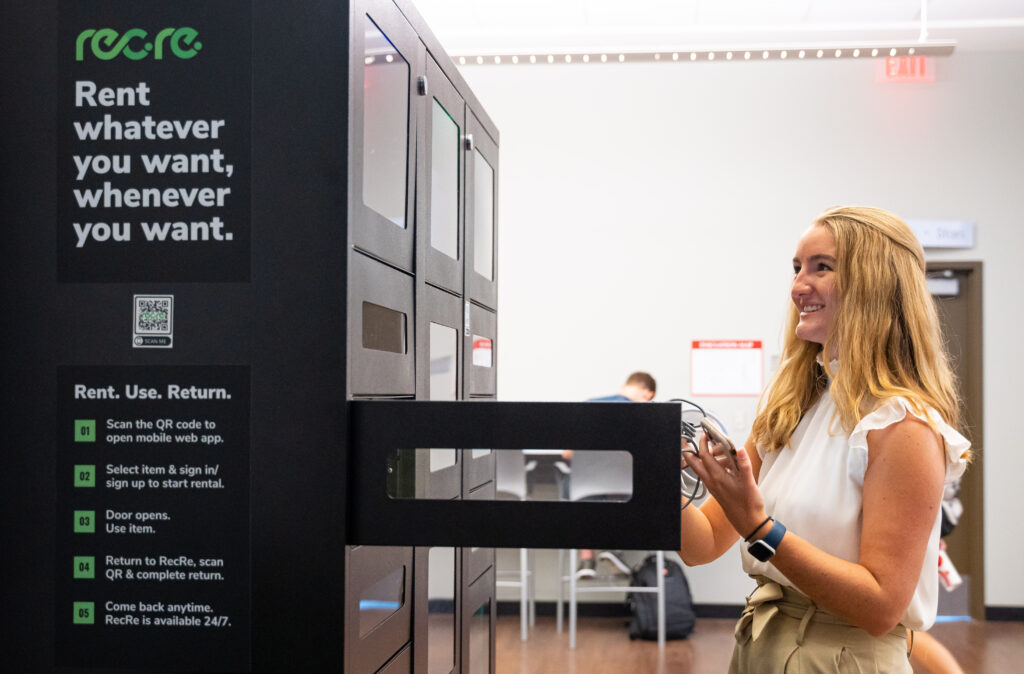Five Future Trends in Campus Life in Higher Education for 2024
As we look to the future of campus life, let’s draw on insights from leading higher education communities including ACUI (Association of College Unions International), NACAS (National Association of College Auxiliary Services), NIRSA (Leaders in Collegiate Recreation), NASPA (Student Affairs Administrators in Higher Education), and ACHOUI (Association of College and University Housing Officers International).
After countless conversations with thought-leaders in the industry, we’ve settled on a handful on key trends we believe will define higher education campuses in 2024.
1. A Focus on Holistic Student Development
In response to NIRSA and NASPA’s advocacy for complete student development, institutions will adopt a more holistic approach. This includes an expanded emphasis on mental health resources, wellness programs, and experiential learning. These initiatives aim to develop not just the intellectual prowess of students, but their personal, social, and emotional capacities as well. Alongside traditional education, life skills such as resilience, communication, and self-care will take center stage. The ultimate goal? To foster well-rounded students capable of contributing positively to a global society.
2. Enhanced Campus Experiences through Technology
Building on the insights of NACAS, technology will play an increasingly prominent role in enhancing the campus experience. Students will find value in more self service conveniences, the evolution of smart campuses, and the integration of augmented/virtual reality experiences into learning environments, campus navigation, and extracurricular activities. Through these innovations, universities will boost student engagement, promote safety, and create immersive learning experiences that extend beyond the traditional classroom.

3. Reinvention of Physical Spaces
Guided by ACUI’s focus on evolving spaces, colleges and universities will transform their physical spaces to meet changing student needs. Expect flexible study areas, innovative group activity spaces, and facilities tailored for digital nomads. Campuses will incorporate safety measures in response to recent global health concerns, while also promoting inclusivity, accessibility, and community building.
RecRe’s automated lending platform has shined as an amenity that supports higher education administrators initiatives to activate their shared spaces in student unions, community areas in residence halls and green spaces around campus.
4. Sustainable and Environmentally-Friendly Campuses
In alignment with worldwide sustainability efforts, campuses will invest more in becoming environmentally-friendly. Sustainability principles will permeate institutional policies, academic curricula, and physical infrastructure. Universities will use their power as research and innovation hubs to drive green initiatives, aiming to reduce their carbon footprints and foster a culture of environmental responsibility among students. Students will not only learn about sustainability but live it daily, creating a truly sustainable learning environment.
5. Revamping Housing and Residence Life
Taking cues from ACHOUI’s work, we will see a significant transformation in campus housing. No longer just a place to sleep, university housing will pivot towards creating engaging living-learning communities. This might include implementing mentorship programs, mixed-use spaces for both learning and socializing, and ensuring all housing is accessible and inclusive. These changes will cater to the diverse needs of the student body, fostering an enriching residential experience that complements the academic journey.
The future of campus life promises to be an exciting blend of innovation, inclusivity, and a student-centered approach. From holistic development and tech integration to sustainable practices and reimagined living spaces, we eagerly anticipate these trends to redefine the student experience in 2024 and beyond.